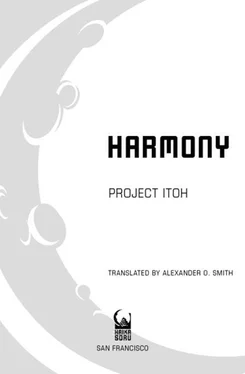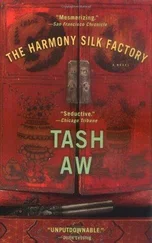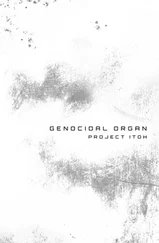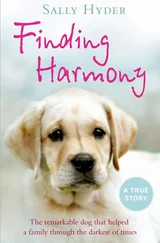Itoh, Project - Harmony
Здесь есть возможность читать онлайн «Itoh, Project - Harmony» весь текст электронной книги совершенно бесплатно (целиком полную версию без сокращений). В некоторых случаях можно слушать аудио, скачать через торрент в формате fb2 и присутствует краткое содержание. Год выпуска: 2010, Издательство: Haikasoru/VIZ Media, Жанр: Старинная литература, на английском языке. Описание произведения, (предисловие) а так же отзывы посетителей доступны на портале библиотеки ЛибКат.
- Название:Harmony
- Автор:
- Издательство:Haikasoru/VIZ Media
- Жанр:
- Год:2010
- ISBN:нет данных
- Рейтинг книги:4.33 / 5. Голосов: 3
-
Избранное:Добавить в избранное
- Отзывы:
-
Ваша оценка:
- 80
- 1
- 2
- 3
- 4
- 5
Harmony: краткое содержание, описание и аннотация
Предлагаем к чтению аннотацию, описание, краткое содержание или предисловие (зависит от того, что написал сам автор книги «Harmony»). Если вы не нашли необходимую информацию о книге — напишите в комментариях, мы постараемся отыскать её.
Harmony — читать онлайн бесплатно полную книгу (весь текст) целиком
Ниже представлен текст книги, разбитый по страницам. Система сохранения места последней прочитанной страницы, позволяет с удобством читать онлайн бесплатно книгу «Harmony», без необходимости каждый раз заново искать на чём Вы остановились. Поставьте закладку, и сможете в любой момент перейти на страницу, на которой закончили чтение.
Интервал:
Закладка:
But the woman’s argument was so in line with admedistration ideas of propriety, so modestly put—and so one-sided, so easy to understand, and so filled with determination.
Determination after determination.
People in the admedistrations liked other people to decide things for them. People who made decisions created an atmosphere. Scientists had always been bad at this. That was because the facts could be dry and were often complex; yet by necessity the truth must be plain enough to withstand repeated inquiry, all of which made it unappealing. So my father told me some time after the session had ended.
My father had said that certain occupations required the use of caffeine, and that there were certain kinds of stress that caffeine helped reduce.
“The arguments Mr. Kirie gives us,” the woman said, close to the end of the session, “are quite like the rationales given by those who clung to their tobacco and alcohol habits, even when everyone around them had abandoned the foul things.”
Not once did my father manage to get the word moderation in edgewise. Though caffeine wasn’t about to be wholly abolished, the atmosphere in the session clearly colored caffeine as a poisonous, indecent substance to be avoided.
I felt sick through most of the session.
Not an upset stomach. More of a spiritual queasiness. Like my mind wanted to vomit. To me, the woman was a menace, and I couldn’t understand why everyone in the session seemed to be nodding and swallowing the venomous words she spat out like candy.
“I know it’s not very realistic, but I have a dream that someday,” the woman said in closing, “someday caffeine will be entirely abolished.”
I regretted having asked my parents to take me with them to the session.
I remembered seeing a media channel where they showed picture after picture of food items I had never seen before in my life. When I asked my father what it was, he said they called it the “Two Minutes’ Hate.”
“It’s for us, mainly, the last generation who ate food with too much fat, too much cholesterol, too much salt—food that’s bad for your health and not properly resource-aware. We were to watch that and think ‘I can’t eat that. People who eat those things aren’t fit to be in our society. They lack resource awareness. They’re harming their public body.’ It’s a form of self-suggestion.”
The program had aired regularly ten years before. And now the kind of hatred against unhealthy food that started with the Two Minutes’ Hate had born fruit in the form of opinions like the one we heard in the session that day—a call for everyone to join in a shared hatred of caffeine.
I was proud of my father. He had created WatchMe. He had changed the world. I didn’t want to see him shamed like this. If this was the admedistration, if this was the world, then I didn’t want to be there. This was long before I met Miach, but my feeling of discomfort that day was so severe that I remembered the morality session for a long time afterward. The discomfort followed me to school, and even when I played games at home. It was always there, gnawing at my stomach. I never wanted to go to a session again.
The first person to notice my discomfort was a girl reading a book by the jungle gym in the park I passed by on my way home from school. She walked up to me and asked if I knew why the jungle gym bars warped the way they did.
≡
“This is BirdRider with an announcement for all passengers. This Northern Passengers 947 DR flight out of Tokyo will be landing in the Baghdad Medopolis in one hour.”
The announcement telling me my arrival time came like a soft whisper in my ear. Very pleasant. Unpleasant things were abhorred in this world.
No disease, no unsettling tastes, no disturbing images. If, by some gross miscalculation, you did happen across any of these things, there were plenty of therapists waiting to help.
A world devoid of unpleasantness. I wondered how much further we had to go until we reached a world devoid of life. The land of the dead.
While the silky soft voice sounded next to my ear, I leaned forward in my seat and looked out the window at the six main wings of the PassengerBird. The wings rippled and changed form, as if they were actually flapping as they curled around invisible currents of air. Back when airplanes had been the main form of aerial transportation, travel hadn’t been half as elegant.
That put me in mind of the jungle gym again. The words from Miach’s lips.
Even at the beginning of the twenty-first century, jungle gyms were still made of metal. Not intelligent, not morphable. Not even soft.
I thought by now I was my own woman, but here I was, chasing after Miach’s shadow again. For most of my time in flight, I had been reading a paper about healthy society that Professor Saeki had recommended to me. It turned out that there were many things the Nazis had started. PA systems, for instance. Before digital delivery and direct feeds to HeadPhones became widespread, these electronic devices magnified one’s voice in order to broadcast information to many people at the same time. The autobahn had been the grandfather of our modern expressway. Funny that it was only scholars who seemed to associate the Nazis with a healthy society.
“Hitler’s mother died of breast cancer, you know,” Professor Saeki said. “Her doctor was a Jew. That’s what started Hitler’s hatred of the Jewish people. In other words, the Holocaust was born from Hitler’s mother’s breast…I forget whether it was the right or the left.”
I left my seat and walked up the steps from the passenger area to the café on the PassengerBird’s upper deck lounge. Up here, it was like you were standing on the roof of the Bird. Blue sky stretched in every direction, and the sea of clouds below shone a brilliant white, thick with moisture. Perhaps with this in mind, the floor had been made of a supple white material that gave softly under pressure, visually blending with the clouds at its edges. The walls of the PassengerBird were made of an intelligent material that went transparent when you looked at it, giving its passengers a panoramic view. If it were not for the thin lines of the PassengerBird’s frame, it would have seemed like you were floating in the sky.
Everything in the world is floating in the sky.
When there’s no disease, when time has stopped.
People who take nicotine know nothing of politeness.
Nicotine makes your arteries shrink and your blood run thick.
Schopenhauer and Kant both despised smoking, Professor Saeki told me.
I rested my elbows on the bar counter and ordered a small enough portion of caffeine to not break any rules of etiquette. Though tobacco and alcohol had been thoroughly obliterated, I was glad that caffeine had somehow managed to hang on. Even so, there were a lot of people who frowned at you if you ordered a cup of coffee, signs of a slowly building wave of momentum against caffeine. It had gotten worse in the last decade.
I went to one corner of the café and found a seat—one of several red gelatinous mushrooms protruding from the white deck. The café was completely empty. There were hardly any passengers either. I asked one of the attendants whether this was typical of the flight, and he agreed that numbers were down today.
Because the world had changed.
People were staying in their homes, thinking. No longer could anyone say for sure they wouldn’t be dying anytime soon. Especially not the people who had witnessed the newscaster killing himself.
To each, his or her own level of internal conflict.
Distress, hesitation, resentment, raw emotion.
Should I not kill and die, or should I kill and live? That was the question.
I imagined darkness sweeping through the households of the world in a churning wave of bleak emotions. Most admedistrations had called immediate sessions to discuss the declaration, but hardly anyone had shown up. What was there to discuss?
Читать дальшеИнтервал:
Закладка:
Похожие книги на «Harmony»
Представляем Вашему вниманию похожие книги на «Harmony» списком для выбора. Мы отобрали схожую по названию и смыслу литературу в надежде предоставить читателям больше вариантов отыскать новые, интересные, ещё непрочитанные произведения.
Обсуждение, отзывы о книге «Harmony» и просто собственные мнения читателей. Оставьте ваши комментарии, напишите, что Вы думаете о произведении, его смысле или главных героях. Укажите что конкретно понравилось, а что нет, и почему Вы так считаете.












